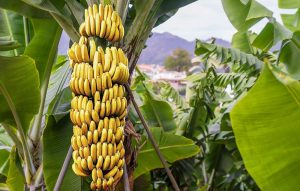
The whole history of “the Banana Republic” is an interesting concept! I didn’t know that bananas had to be scientifically altered in order for them to grow effectively and create a fruit that we see as a staple in most homes. It’s interesting that there was a whole company dedicated to fruit (UFCO), and that a simple thing like bananas could cause such a stir in the world.
It just seems to me like when the US saw something it wanted in Latin America, it just decided that it would do whatever was in its power to have that thing. Dawson’s words were “U.S military interventions are typically explained to North American audiences as exercise in the spread of democracy, but to the victims of those interventions American militarism means the naked use of violence in the defence of U.S interests”, and that “outright opposition to U.S interests means war”. Personally, this doesn’t exhibit to me that the relations between the two places were being improved, or that the U.S was trying to better this relationship for genuine reasons. This just seems like the U.S doing whatever they wanted and fighting anyone that opposed them, and trying to make Latin America a compliant trading partner.
The thing to think about here also, if we’re speaking about modern day trading and exploitation, is that this only happens because there is a market for it. We love having our coffee in the morning with a spoonful of sugar! Oil and gas is another example of not so great relations between the U.S and other countries. As long as there is a demand for these goods, the negative trading and corruption will continue. Is there a remedy for this? What solution is there to fix the trading corruption and exploitation of other countries and foreign workers? I don’t know.. do you?
Thanks for reading 🙂
Did you empathize with Sandino because of the overwhelming super power of the United States? Did you think that Sandino’s text was threatening and convincing?
That’s a hard question! One way of trying to address corruption would be ensuring organizations such as the International Labour Organization are impartial and doing their job properly. However, that’s a difficult thing to do, and some might argue that this trading relation between North and Latin American is intrinsic to the system – so it’s clearly a complex topic, but understanding the history of trade between the two regions definitely clarifies it a bit.
I also didn’t know that the banana we’re familiar with today is a product of years and years of genetic selection and alteration. Also, that they can’t be ripened on the tree! This changes the image in my head of what banana production looks like, today and in the past. I wonder if these selections of banana characteristics lead the bananas to lose any nutrition, or contributed to practices that are worse for the environment than the original banana. It’s interesting how the demand for one agricultural product can lead to so much alteration and adaptation to meet that demand, which is most likely done with little regard for the fare of the crop in the future.